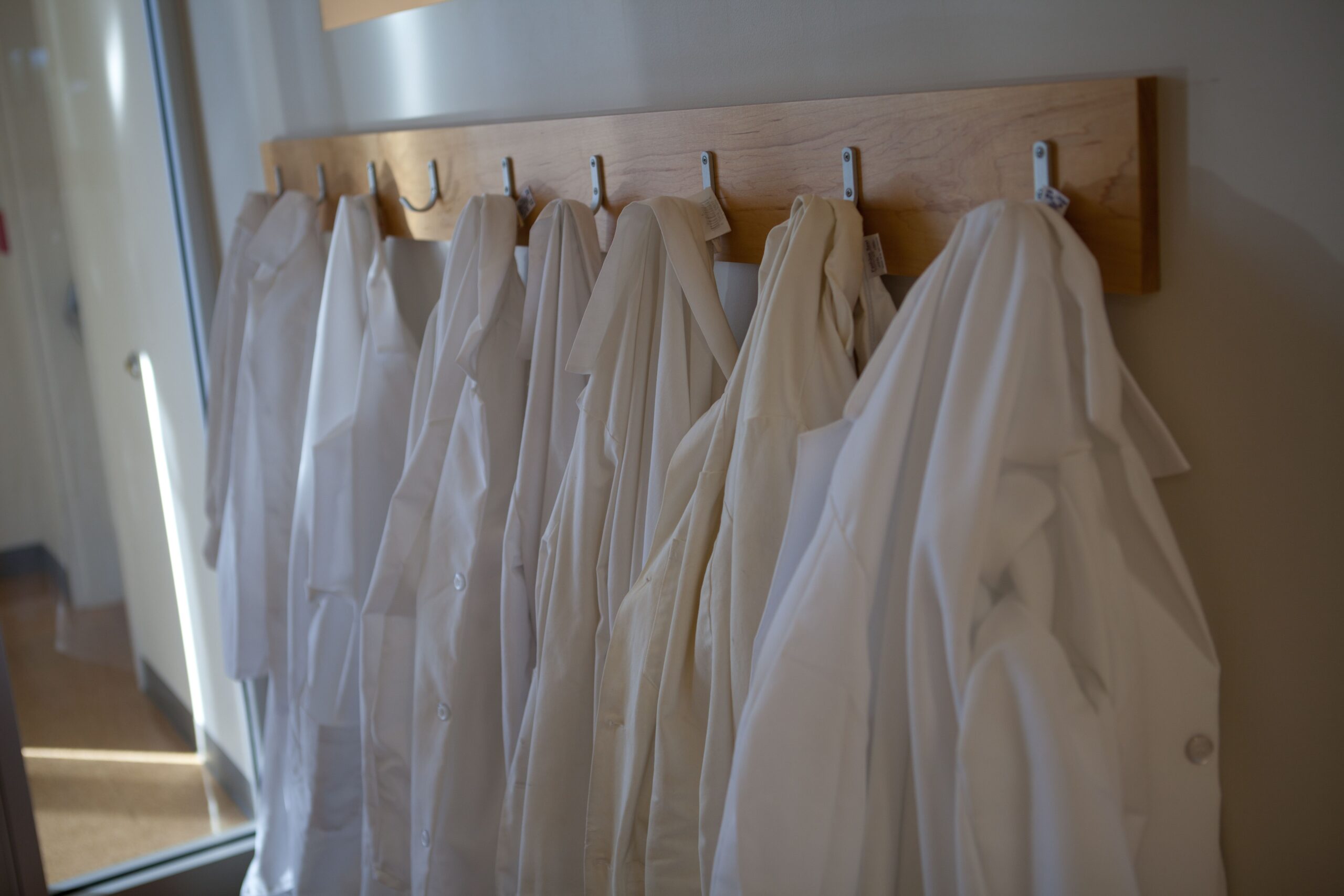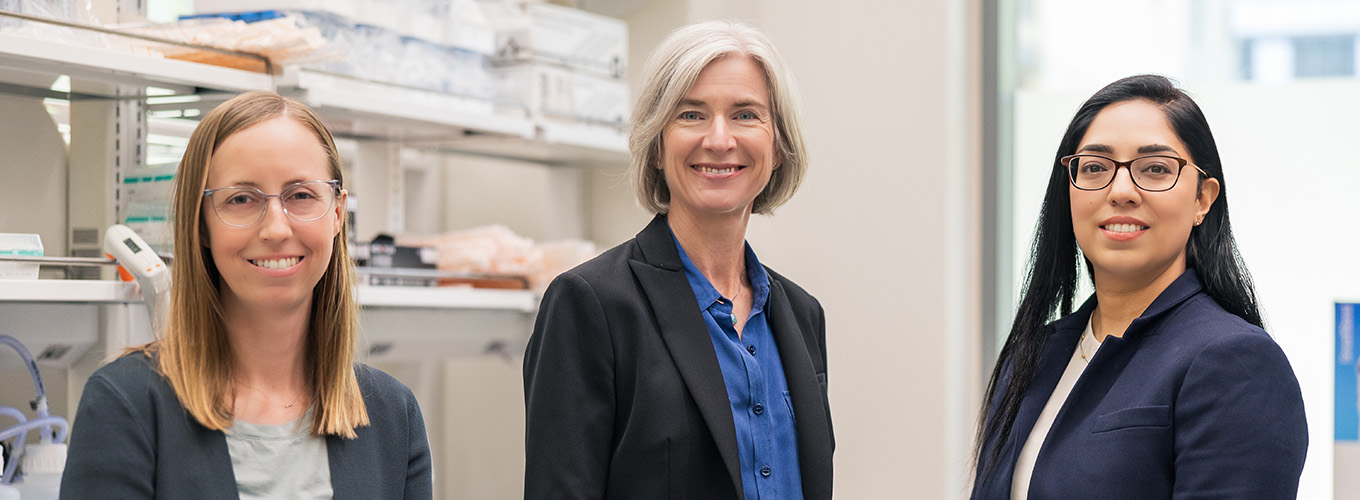
Women in Enterprising Science Fellows Receive $2 million in Seed Funding
Two Fellows from the inaugural cohort in the HS Chau Women in Enterprising Science (WIES) Program at the Innovative Genomics Institute were selected to move onto the second phase of the program, each receiving an award of $1 million in non-dilutive seed funding to support their entrepreneurial pursuits. The Fellows, Jenny Hamilton and Navneet Matharu, made the choice to continue pursuing entrepreneurship and were selected after pitching their business ideas to a panel of experts who reviewed their milestones and progress in the first year.
“In this era of unprecedented innovations that are transforming lives for the better, women face yet greater challenges as rapid developments outpace the ongoing efforts to level the playing field,” says Solina H.S. Chau, whose foundation supports the WIES program. “Hope is the momentum that can bridge the divide, and I believe that investing in more women scientists today will reap immeasurable benefits for humankind in the future.”
Hamilton, formerly a postdoctoral researcher in Jennifer Doudna’s lab, is developing a novel method of delivering genome-editing tools into human cells. Her enveloped delivery vehicles (EDVs) rewire viruses’s clever methods for getting into specific cell types.
“I’m really excited about the award,” says Hamilton. “It’s enabled me to take the experiments that I’ve been pursuing as a WIES Fellow to the next level, moving the technology out of an academic lab. The WIES program and support from IGI and the HS Chau Foundation has given me the confidence to be able to think that I really could translate my research into an applied technology.”
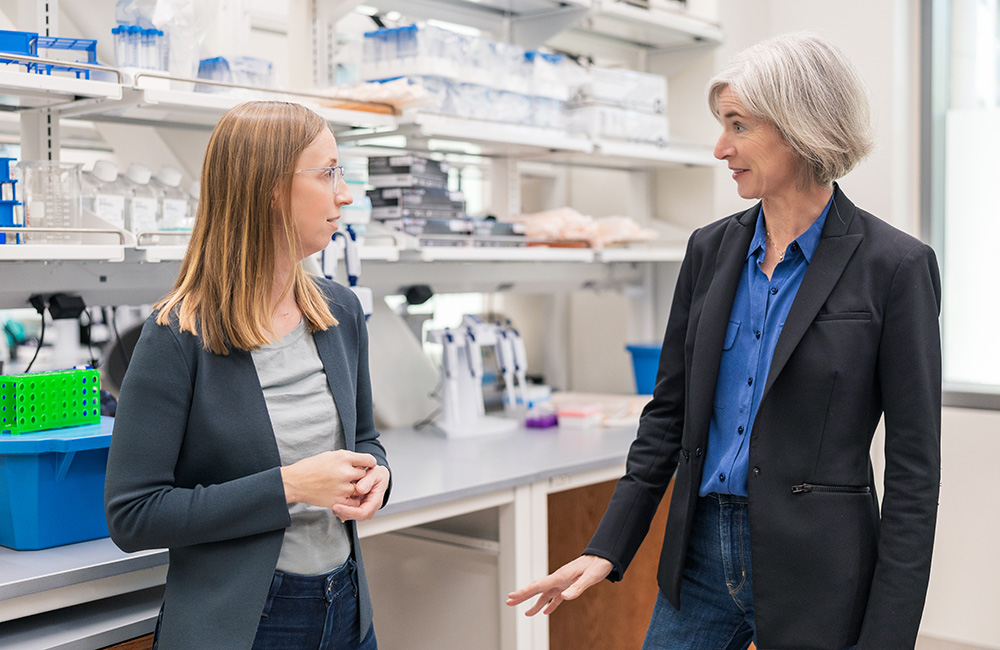
Matharu, an Assistant Professor at UC San Francisco, is studying genetic disorders that have high unmet needs, and developing non-editing forms of CRISPR-based therapeutics. Matharu cofounded Regel Therapeutics, a gene therapy company, in 2021.
“This is an extremely meaningful award from the HS Chau Foundation,” says Matharu.”This funding will enable us to utilize our foundational technology to diversify and expand the therapeutic development pipelines at Regel.”
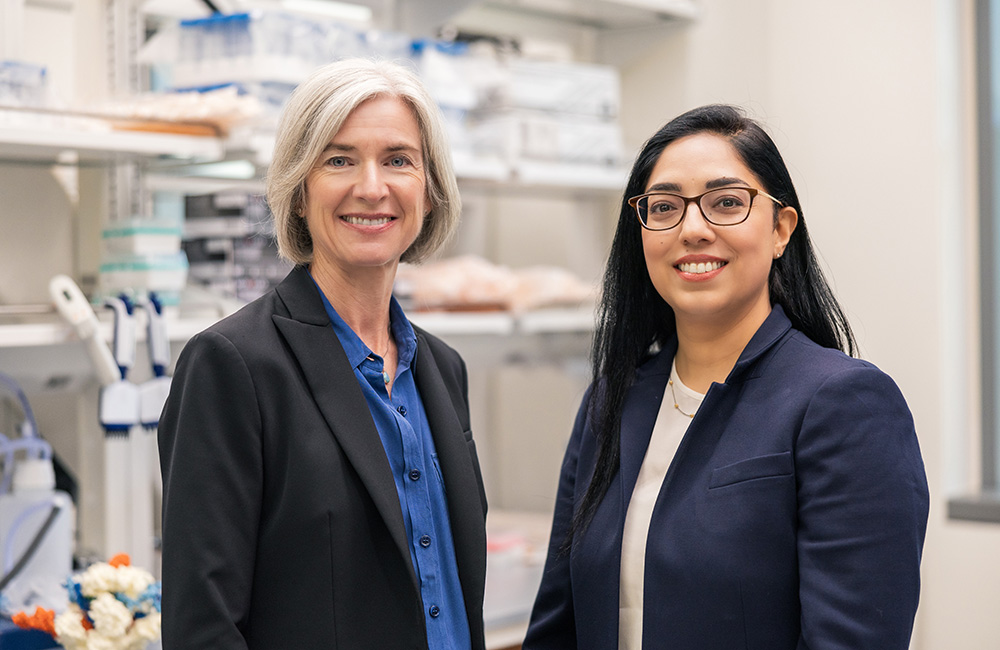
Over the past year, the Fellows took classes at Berkeley Law, Haas Business School and UC Berkeley’s Life Sciences Entrepreneurship Center. They also attended panel discussions with women entrepreneurs, participated in round tables with subject-matter experts, and received one-on-one mentoring from Jennifer Doudna, Fyodor Urnov, and other members of IGI leadership, as well as founders of Bay Area biotechnology companies.
“I’ve found that the community of female entrepreneurs and CEOs has been incredibly supportive,” says Hamilton. “So many people have volunteered their time and really want to help the next generation of women start their own companies. Through the WIES program, I’ve been able to meet with and extend my network with women who have done this before.”
Both Fellows are intent on paying it forward, creating companies where people of all genders can thrive.
“Gender equity is important to address at every level in this journey,” says Matharu. “It’s something I think about every day. Of course hiring women and promoting women in leadership is important. But it’s also about addressing implicit bias as an organization like, by having an equal voice at decision making. It’s about empowering women in an organization to break the ceiling in whatever we are doing. My role models are women who have come before me and broken the mold, like Barbara McClintock and Jennifer Doudna.”
Lin Du, the third member of the inaugural WIES cohort and a former postdoctoral researcher in the Department of Electrical Engineering and Computer Sciences at UC Berkeley, is starting a faculty position and will continue to incubate her technology with the goal of solving real world problems. Right now, she is focused on developing a rapid, multiplex platform for point-of-care diagnosis of sepsis.
“The WIES program has been transformational for me,” says Du. “Previously, I was focused mostly on the technology itself. Over the past year, I’ve realized that you have to talk to the people who will actually use your product to understand the best direction for helping people. The physicians I spoke with told me they need a better way to diagnose sepsis, considering the rapid, multiplex, and cost efficient features of the platform I have been working on, I am dedicated to applying it for point of care sepsis diagnosis.”
Du, the mother of a one-year old daughter, is passionate about making biotech more inclusive for working parents.
“There are many, many fewer women than men in entrepreneurship,” says Du. “So many women leave after having children. I want to provide a flexible working environment so moms can stay in their careers. It’s crucial to support women’s service and women’s leadership.”
This month, the IGI is welcoming a new cohort of WIES Fellows. Learn more about our 2023-2024 Fellows here.
[metaslider id=”31705″]
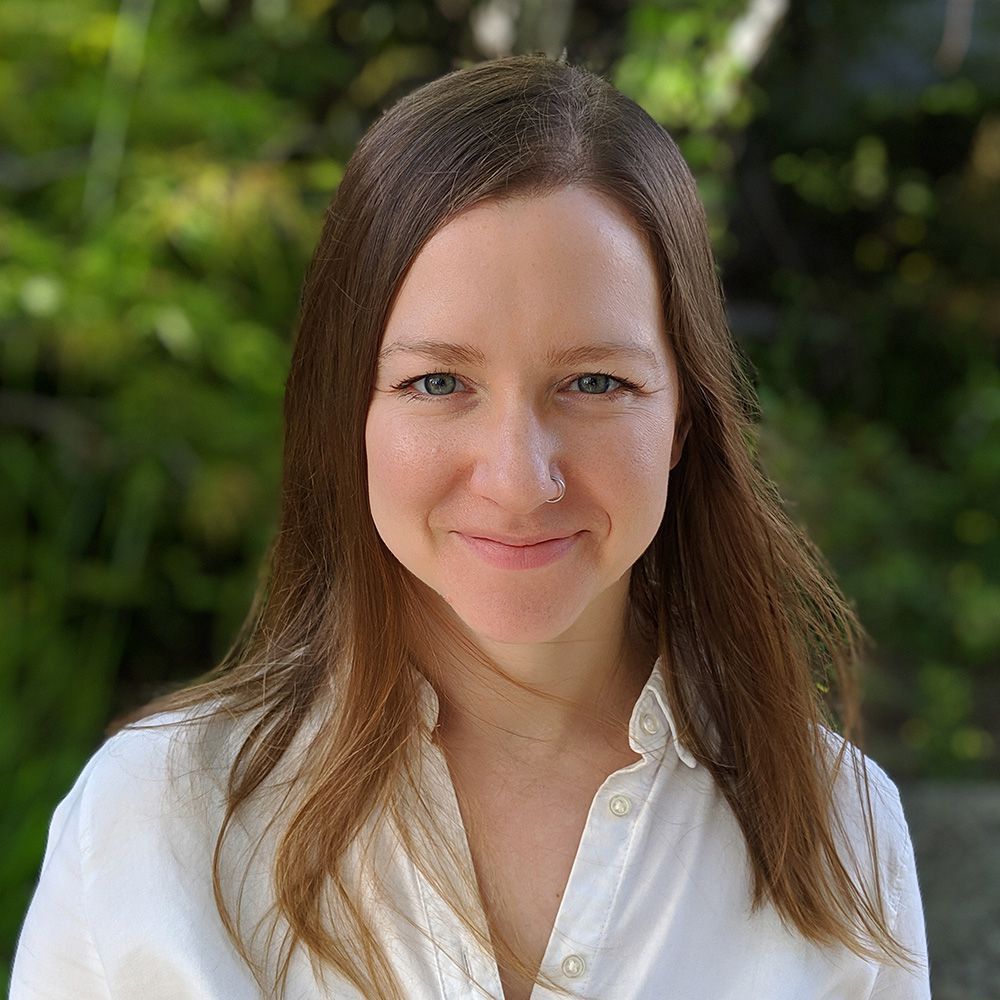 By
Hope Henderson
By
Hope Henderson
